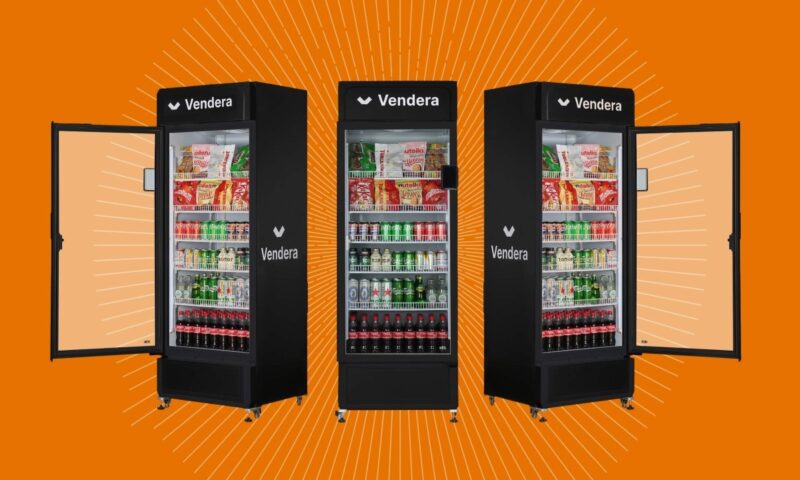The accounting industry is transforming, and Ali Sarafzadeh is already ushering in its future.
He’s had a wealth of experiences, shaping a career that began with government finance-related positions in Washington, D.C.’s Department of Consumer and Regulatory Affairs in its Corporations Counsel and various director roles with the state of Vermont.
And then, an entrepreneurial streak took hold.
After building an award-wining government technology platform for the state of Vermont, Sarafzadeh transitioned to his first startup, serving as Chief Product Officer (CPO) in “regtech” and blockchain work with PCC Technology. PCC grew to 30 states and $40 million in revenue before being acquired.
Staying at the intersection of regulation and technology, Sarafzadeh co-founded education tech company Learnly in 2015, where he held its CPO position for nearly four years before launching more ventures. He founded Saasable in 2019, and later in 2020, SaasIQ (both enterprises’ names are based on the acronym “SaaS” for “software as a service”). The former company, Saasable, provides an analytics dashboard to accounting firms and banks for their small business customers, while the latter one, SaasIQ, is an automated underwriting and embedded finance platform for small business banks and their customers based on the same technology.
As someone who has always worked at the intersection of tech and highly regulated industries, he says that his role as CPO and the accounting industry itself have evolved in recent years.
“I am seeing more and more complex products being built that go deeper into the enterprise and require deeper subject matter expertise,” says Sarafzadeh. “As a result, you will see that more and more leaders must have the ability to be impactful in multiple layers of the company.”
That understanding figured into the launch of Saasable, which he says was created with “the backdrop of significant changes to traditional financial and accounting sector business models.”
Seeing the abundance of insights that had been relegated to online cloud-based accounting systems, Sarafzadeh and his team were able to provide an innovative service that hadn’t yet been available.
“Saasable was born from the idea that we could extract that data with a single click and give value to our small business and accountant customers in ways not previously possible, and in doing so, lay the groundwork for a next generation of fintech product,” he says, noting how initially, the challenge his company faced was convincing its accounting firm partners to use the platform with their customers. “But we quickly learned that in doing so, our users were leveraging the time savings from the automation we offered into higher-value advisory services around how to improve customer metrics,” he says.
A Validated View, An Original Vision
Earlier in 2021, Saasable was chosen to take part in the AICPA Startup Accelerator program offered through the American Institute of Certified Public Accountants. The organization’s intent is to help new ventures develop across the accounting industry to help effect change in the profession by giving those working in the field more tools to become indispensable analysts, strategists, and consultants in whatever context they operate.
For Sarafzadeh, being involved in the AICPA Accelerator confirmed his company’s vision.
“It provided great validation for our view that the future of finance was interconnected directly into a small business’s accounting system. And the AICPA agreed, and in doing so, gave us a safe place to ask very dumb questions from industry professionals,” he reveals. “It also allowed us to ‘accelerate’ the customer validation process with a key customer segment—accountants—while being a strong signal to the market that technology is a key component to the future of accounting.”
Sarafzadeh is equally excited about his company SaasIQ. He says that the venture represents an evolution of his team’s original vision of banking, one that is built upon the belief that working with these systems directly offers insights previously unavailable to small businesses and their customers.
“SaasIQ allows a bank to connect to their customers’ accounting systems and extract all of the data they need, significantly shrinking origination and renewals while empowering new data for cross-selling non-interest income, real-time compliance, and covenant tracking,” he says, pointing out that, at the present time, the only touchpoints banks have with lending customers basically come down to their deposits and their email address.
He explains how his startup gives banks the power to convert what had previously been a highly manually process. “We reorient it towards the customer’s accounting system as the new nexus from which everything else with the customer can flow. Bringing the banking and accounting sectors closer together in a new way never thought possible is exciting,” Sarafzadeh says, because once that connection is made, the possibility of new digital products and services grows “exponentially.”
Built on a McIntire Foundation
Fully invested in the success of his startup ventures, Sarafzadeh says that his time in McIntire’s M.S. in Accounting Program is still helping him reach his goals, having provided a benefit that prepared him to advance in his work, even at this stage of his career.
“The fundamental accounting principles that one learns during the program have allowed me to significantly shrink the learning curve on the complexity of our customers’ needs, which immediately feeds our go-to market and first-mover advantages,” he says.
From his time in the Commerce School, he recalls being “struck by the caliber and dedication” of the Accounting faculty to both the students and the teaching profession. He says that attention made all the difference.
“Opportunity lives in the nuances of any subject matter. Accounting is not an easy subject matter to learn, so being able to see the nuances is a testament to the fundamental learning that I experienced while I was there.”



